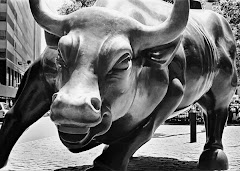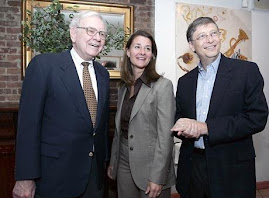I’ve been hiding away from stock market for almost a year. I literally stopped updating on business/financial/economic news. It’s a total stop since early 2008. You only get to see some of my holiday pictures on my blog. But this is going to change now as I am back to business again! As you can see, this is my first article in 2009! But hold you horse!
Recently, a few friends had been asking me whether if “now is the time”? This is because, while some had made quick bucks from AIG or City Group, others were motivated with strengthening of indexes around the world.
The important question is – how to assess/predict whether now is the correct time? When is the correct time? Can any human being possibly know when is the correct time? Does holding an MBA in finance or CFA give you an edge in predicting the right time?
Answer is NO!
There is a way to predict the right time but unfortunately, this method is also not possible. That is to have the ability to read all investors’ mind. My point is indexes are just flashing numbers that reflects all investors’ action/decision. Unless you are able to read their mind, by looking at these numbers will not help you a lot unless you want to speculate. Furthermore, most of the time, the decision of these huge masses is wrong! I am not bragging. I always like to share with my personal friends one of my findings on stock investments – don’t follow the crowd, they make mistakes very frequently.
So if staring at the indexes is not advised, then what other better approaches? The answer, I would like to repeat again is the economic health especially of the world largest and most powerful country – the United States. Is U.S. economy on its road to recovery? Any convincing evidence? How about U.S. job market? Certainly high unemployment and low income will hit the manufacturing sector. And when U.S. manufacturers shrink their production output, Singapore manufacturers are going to suffer.
Recently a lady came to my company for an interview. She is an accounting professional currently working for a manufacturing company. Unfortunately, her company cut working days by a hefty 40%! That would mean a huge pay cut for her, temporarily. She has no choice but to find another company although she likes the working environment/culture in her present job.
The following are excerpts from the Business Times that hopefully will give you a feel of the economy.
==============================
“As Wall Street put to bed the first four-week run of gains for the US stock market in nearly a year and a half last Friday, market strategists were already debating whether the nascent bull run can stand up to the challenge of an especially grim first-quarter earnings reporting season.
……. On Friday, stocks continued to rally despite another awful, estimate-beating employment report. The Dow Jones Industrial Average gained almost 40 points, or 0.5 per cent, to end at 8,017.59, its first close above 8,000 since Feb 9. The S&P 500 climbed eight points or one per cent, reaching 842.50 at the closing bell. The Nasdaq composite added 19 points, or 1.2 per cent, to 1,621.87.
=============================
While a global recovery is possible in 2010, Mr Soros said the timing will ultimately depend on the depth of the recession. China, he said, will be the first country to emerge from recession, probably this year, and will spearhead global growth in 2010.
=============================
The report comes after government data on Friday showed that the US unemployment rate rose to a 26-year high of 8.5 per cent, as employers slashed 663,000 jobs under the strain of recession.
=============================
'The lead economic indicators have not shown any sign that there is a bottoming or a recovery, or there are no concrete signs of that,' said SIAS Research vice-president Roger Tan.
=============================
'It's a bear-market rally because we have not yet turned the economy around,' Mr Soros, 78, said in an interview on Monday with Bloomberg Television.
….. Mr Soros said the banking system is 'seriously under water' with banks on 'life support'. 'They are weighed down by a lot of bad assets, which are still declining in value,' he said in the interview. 'The amount is difficult to estimate, but I think it's in the region of maybe a trillion-and-a-half dollars.'
Recently, a few friends had been asking me whether if “now is the time”? This is because, while some had made quick bucks from AIG or City Group, others were motivated with strengthening of indexes around the world.
The important question is – how to assess/predict whether now is the correct time? When is the correct time? Can any human being possibly know when is the correct time? Does holding an MBA in finance or CFA give you an edge in predicting the right time?
Answer is NO!
There is a way to predict the right time but unfortunately, this method is also not possible. That is to have the ability to read all investors’ mind. My point is indexes are just flashing numbers that reflects all investors’ action/decision. Unless you are able to read their mind, by looking at these numbers will not help you a lot unless you want to speculate. Furthermore, most of the time, the decision of these huge masses is wrong! I am not bragging. I always like to share with my personal friends one of my findings on stock investments – don’t follow the crowd, they make mistakes very frequently.
So if staring at the indexes is not advised, then what other better approaches? The answer, I would like to repeat again is the economic health especially of the world largest and most powerful country – the United States. Is U.S. economy on its road to recovery? Any convincing evidence? How about U.S. job market? Certainly high unemployment and low income will hit the manufacturing sector. And when U.S. manufacturers shrink their production output, Singapore manufacturers are going to suffer.
Recently a lady came to my company for an interview. She is an accounting professional currently working for a manufacturing company. Unfortunately, her company cut working days by a hefty 40%! That would mean a huge pay cut for her, temporarily. She has no choice but to find another company although she likes the working environment/culture in her present job.
The following are excerpts from the Business Times that hopefully will give you a feel of the economy.
==============================
“As Wall Street put to bed the first four-week run of gains for the US stock market in nearly a year and a half last Friday, market strategists were already debating whether the nascent bull run can stand up to the challenge of an especially grim first-quarter earnings reporting season.
……. On Friday, stocks continued to rally despite another awful, estimate-beating employment report. The Dow Jones Industrial Average gained almost 40 points, or 0.5 per cent, to end at 8,017.59, its first close above 8,000 since Feb 9. The S&P 500 climbed eight points or one per cent, reaching 842.50 at the closing bell. The Nasdaq composite added 19 points, or 1.2 per cent, to 1,621.87.
=============================
While a global recovery is possible in 2010, Mr Soros said the timing will ultimately depend on the depth of the recession. China, he said, will be the first country to emerge from recession, probably this year, and will spearhead global growth in 2010.
=============================
The report comes after government data on Friday showed that the US unemployment rate rose to a 26-year high of 8.5 per cent, as employers slashed 663,000 jobs under the strain of recession.
=============================
'The lead economic indicators have not shown any sign that there is a bottoming or a recovery, or there are no concrete signs of that,' said SIAS Research vice-president Roger Tan.
=============================
'It's a bear-market rally because we have not yet turned the economy around,' Mr Soros, 78, said in an interview on Monday with Bloomberg Television.
….. Mr Soros said the banking system is 'seriously under water' with banks on 'life support'. 'They are weighed down by a lot of bad assets, which are still declining in value,' he said in the interview. 'The amount is difficult to estimate, but I think it's in the region of maybe a trillion-and-a-half dollars.'




No comments:
Post a Comment